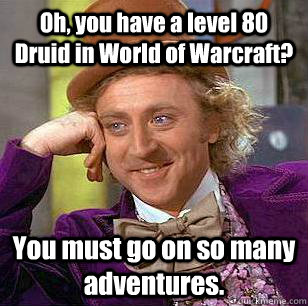Every sin is against a holy God, and against Him only do we sin (Psalm 51:4). This, with the fact that we are all guilty and deserve death (Romans 6:23), can sometimes tempt us to flatten all offenses and treat them all as equal. After all, James 2:10-11 says that if you fail to keep the law in one point, you are accountable to the whole law.
Jesus and the Pharisees
One of the warnings given against any kind of ranking is that is the temptation of pride, to act like the Pharisee who looks over at the sinner, and thanks God that he is not like him (Luke 18:9-14). While the sin and temptation to act like a Pharisee is perennial, we often are blind to what the sins of the Pharisees actually were, even though Jesus spells it out quite clearly for us time and again. We are never more like Jesus’s disciples than when we are like this: befuddled, confused, and always missing the point.
What were Jesus’s actual criticisms of the Pharisees?
Matthew 23: 23 – 24
Woe unto you, scribes and Pharisees, hypocrites! for ye pay tithe of mint and anise and cummin, and have omitted the weightier matters of the law, judgment, mercy, and faith: these ought ye to have done, and not to leave the other undone. Ye blind guides, which strain at a gnat, and swallow a camel.
There are weightier matters of the law. And some things are gnats while some are camels.
In the Sermon on the Mount, which is partly a response to the “rightouesness” of the Pharisees, Jesus says in Matthew 7:3-5:
Why do you see the speck that is in your brother’s eye, but do not notice the log that is in your own eye? Or how can you say to your brother, ‘Let me take the speck out of your eye,’ when there is the log in your own eye? You hypocrite, first take the log out of your own eye, and then you will see clearly to take the speck out of your brother’s eye. (ESV)
Some matters are a speck, and some are a log. The fact that they both impair eyesight does not mean they are equal.
And lest we forget, Jesus also explicitly says that there are some commandments that are greater than others.
You shall love the Lord your God with all your heart and with all your soul and with all your mind. This is the great and first commandment. And a second is like it: You shall love your neighbor as yourself. (Matt. 22:37-39 ESV)
If certain commandments are more important, it makes sense that breaking those commandments would be a more serious matter.
Of course, this is not to ignore the other commandments. But some are foundational, and some are not. Some commandments are downstream from other commandments, caught up by the momentum of the current.
Finally, let’s not forget the the true unpardonable sin, blaspheming against the Holy Spirit (Mark 3:28-29). If we can’t say that this sin is worse than others, does the Christian have any basis of making any value judgments at all? Do words mean anything?
So what was one glaring part of the Pharisees’ problem? Not that they weighted sins differently, but the fact that they weighted sins improperly.
God’s Character Revealed in the Old
I’ve discussed the continuity of the covenant in some other places, and it is important here too to reiterate that the God of the Old Testament is the same God of the New. His character is revealed in both.
Every sin is against a holy God. But has that same God made known that some are more despicable than others? Should we, perhaps, pay attention? The entire law is filled with sins that are given different penalties. Read Ezekiel 8. Some things are more detestable to God than others.
And then, mercy gets bumped further up in the line, for God desires mercy, and not sacrifice (Hosea 6:6). That is an astounding statement, because sacrifice is the very thing that makes it tolerable for God to dwell near his people.
Blood guilt was (and still is) a very real thing, but stipulations were made to take into account motive. Was it an accident or premeditated (Deut 19:4)? That state of heart made a difference in the severity.
And in the New Testament…Continued
Why did Jesus say it would be worse for Sodom than a town that denied hospitality to his disciples? The sins of Sodom were great, but they didn’t seem to light a candle to some of the sins of the generation Jesus preached to.
And what about those who turned Jesus over to be crucified?
Jesus answered him, “You would have no authority over me at all unless it had been given you from above. Therefore he who delivered me over to you has the greater sin. (John 19:11 ESV)
When we get to Paul, we see the same thing. Paul’s list of qualifications for elders in 1 Timothy assumes that some sins will disqualify someone from being an elder.
Then there is the curious statement in 1 Cor. 6:18:
Flee from sexual immorality. Every other sin a person commits is outside the body, but the sexually immoral person sins against his own body.
Sexual sin is a serious matter. Not only is it a sin against the body committing it, its so bad that God uses the sin itself as a judgement against the wicked (Romans 1). In many ways, it is its own punishment.
This even applies to doctrine itself. Of first importance…(1 Cor 15:3-5). God doesn’t hold to irreducible materialism, and neither should you. Some things are the foundation of the house, and some things are just the window trimmings. If we take pride in assuming they are of the same importance, people will rightly give us funny looks when we try to construct an addition to the house and start with laying down the curtains.
Why We Cringe
Why do we react against the simple truth that not all sins are equal? There are three main reasons.
1. Flattening all sins helps us justify our obsession over pet issues.
We all have pet issues, things that we like to focus on to help create our own illusion that we are more righteous than someone else or some other group. If all sins are equal, that helps us pretend that the faith itself is at stake! If all commandments and sins were NOT equal, we would be forced to give our fellow brothers some slack when they did not agree with us on our favorite issue, and therefore realize our personal passion isn’t the most important thing ever since the Resurrection. It slows us down from devouring one another (Gal 5:15).
Weighting sins and commandments properly is a powerful corrective against sectarianism. If you must love God and love your neighbor above all else, then you must love God and love your neighbor above all else. Looking over at the adulterer, and feeling smug because you never cheated on your wife, is completely foreign to the two greatest commandments. Looking over the guy drinking a beer, and congratulating yourself on your teetotalism, is actually hating your neighbor.
So we, like the Pharisees, ask “Who is our neighbor?”, desperately hoping Jesus doesn’t point over there and say…that guy.
Most of the time, these are traditions that have been elevated, but this even applies for those matters that are not traditions. And this where wisdom must come in. Real life is messy, and it cannot be navigated properly with a simple pietism. This leads to our next point…
2. The desire for simple, immature, and straightforward pietism.
One reason that men desire to collapse everything into an indistinguishable glob of goo, including the weight of certain sins, it makes things easier to discern. If everything is black and white, we can just descend into a simplistic form of pietism that requires minimal wisdom. We don’t want to grow up. We don’t want to eat solid food. We don’t want to the constant practice it requires (Heb. 5:14). At least, until the real world slaps us in the face, and then it all collapses. When that happens, we just thank God we’re not like those other people over there, and congratulate ourselves for not compromising and keeping ourselves pure.
Take the cliched scenario of Nazis looking for Jews. If you were hiding Jews in your basement, and the Nazis came knocking, it will not do to wring your hands over lying, or stand tall in your obedience of Romans 13. If you do either, you are not being righteous. You are being a coward. The command for mercy trumps many things. You could even say it is a weightier matter of the law.
3. The most important commandments are really, really hard to obey.
Other people are annoying. I mean, they’re other people after all. Sometimes they smell funny.
Idols also have much too easy of a time settling down in our hearts, and finding a cozy spot on the couch. And then we offer them some iced tea before kissing their feet.
If we are honest, we must admit that we fail in the greatest commandments every single day. We are guilty. But if all sins are equal, perhaps we can take some misplaced solace in the fact that we have succeeded in something monumental.” I haven’t committed adultery and I don’t steal. I must be doing pretty good.” When we try and flatten all sins, we imagine them as deep as the kiddie pool, below our knees. If we don’t commit some, we can high-step it out of this muck.
In reality, the muck is constantly over our heads, and we are drowning. If we miss out on the greatest commandments, the others do not matter. And that is uncomfortable.
We are not in need of weeding our garden. We are in need of a strip-mining crew to lay it bare, haul in new soil, and reseed the cursed ground. Only once we treat the greatest commandments as the greatest commandments, does weeding the garden even make any sense. Only when we have this perspective does tithing out of the spice rack have any value.




